|
Vidas: Hi guys, this is Vidas.
Ausra: And Ausra. V: Let’s start episode 340 of Secrets of Organ Playing Podcast. Today we have two comments which we would like to discuss. The first was sent by Irineo and he writes: “Nice post as usual, maestro. But I recall having seen (or heard) that when you use a very low fifth stop (10 2/3' for instance) along with a 16' you get the effect of a 32'. Trouble is that there isn't any 16' stop left over there. So I guess the only solution lays in calling the technician. Could that be caused by the bellows having ruptured or collapsed and not being able any more to deliver the necessary pressure for the heavier stops? What do you think maestro? Irineo.” V: And the second question was sent by John. He writes: “I frequently quint bass notes on the Subbass - no other stops drawn, as it sounds unpleasant. It only works (as far as I can tell) from bottom C to F - after that it doesn't sound good. This idea of playing the tonic + its fifth on the pedals goes really well with string combinations and 8' - 4' flutes. This gives a quasi 32' effect. Of course when you are playing full organ you can use this method as well (but probably only once at a climax or the last chord).” V: So Ausra these two questions are related because they talk about the 32’ effect. A: True. V: Umm-hmm. And in one post Irineo sometimes uses a low fifth stop plus 16’ to get the effect of 32’ and John uses just the Subbass but playing fifth interval on the lowest notes from bottom C to F. Do you think that in liturgical organ playing it’s nice to have this effect? A: I think yes, because I think if you want to play pedal in fifths definitely but not play repertoire music. It would be more suited for hymn playing. V: And not always entire verse but just the last few chords probably. A: Yes, I think it adds a nice effect. V: A cadence. A: Yes, in a cadence. V: Would you use it? A: Well yes if I wouldn’t have enough stops in the pedal or it would sound nice I would probably use it. And I like how people are creative in a way to get a nice effect on the organ. It’s very nice. V: I just remember when I played organ works by Teisutis Makacinas in Armenian Notebook he had one episode with C chords in the hands and intervals of the fifths in the pedals in the bass range E flat to B flat, D flat to A flat, and C to G, the last few notes of the cadence and I didn’t use 32’ stops. It adds gravity. A: Yes, it’s really nice, nice to gravity in the pedals. V: In symphonic orchestra the basses divide and cellos also play divisi and play in fifths too. A: What about that low fifth in the pedal? Do many organs have it do you think? 10 2/3' as Irineo says... V: Let’s see. Normally we have the lowest fifth 2 2/3’. So that is based on the principal of 8’ level. If it’s based on 16’ level then it is a fifth from the 5 2/3’ I think, right? Sometimes its written 6’ in baroque organs in the pedal. If it’s based on 32’ then yes, 10 2/3’. A: But if you have 32’ stop in the pedal then you don’t have to get the effect of 32’ because you already have it. But if your organ doesn’t have 32’ stop then you shouldn’t have that low quint. V: It should only have 5 2/3’. A: And I mean not quint of fifth. V: I think this is too low for normal organs. A: That’s what I was thinking too unless it’s some sort of experimental organ. You can find things like this too around the world. V: Let’s see. 10 2/3’ organ stop. Where is it organ stop in Wikipedia? Major Quint it’s called in Encyclopedia of Organ Stops. It’s a pedal mutation stop. It has been made in a variety of forms. Wood or metal. Open or stopped. Irwin reports that it is usually of diapason tone. Audsley says that open pipes “are to be desired in all cases.” This stop reinforces the 32’ harmonic series, but it often appears in a pedal division that has no 32’ stops: when drawn with a 16’ stop, it produces a resultant 32’ tone. A: Just as Irineo said in his letter. V: Umm-hmm. So yes, there are examples in German its Grossquitenbass, right? A: Yes, I have seen it. V: And it has it in Atlantic City the great organ in the convention hall, John Wanamaker’s store in Philadelphia, Liverpool Cathedral, Royal Albert Hall in London. Monster organs, right? A: Yes so it’s not a stop that you could find every day on each organ. But I think when talking about organ in general you always need to listen to what sounds well on a particular instrument. Because I think these suggestions cannot be taken for granted because what works well on one organ may not work at all on another one so you always need to check. V: I can read between the lines what your saying and correct me if I am wrong. For example if you are playing a relatively small instrument and you are playing fifths in the bass and trying to do this resultant in the bass which would sound an octave lower. It might sound muddy because there is a reason why this organ is small in such a place, right? A: True. V: There is no enough reverberant acoustic. No place for the echo to spread. A: Because in an ideal world and it’s not always the case in our world when a church is built and an organ is built in it, it needs to be sort of in a nice resonance with the room. So the organ builder has to know to calculate how the organ will sound and according to that to put a specific stop list for a particular instrument. V: And intonation of the stops also that happens in the room itself. A: Yes but of course I would see that sometimes the money is the main cost of the things and you just calculate how much you can afford to put into the instrument and it might also be designed not maybe as it should be. V: But it’s good that people are thinking about that. A: Yes, it’s very good. V: Thank you guys for sending us these questions and remember when you practice… A: Miracles happen.
Comments
Vidas: Hi guys, this is Vidas.
Ausra: And Ausra. V: Let’s start episode 339 of Secrets of Organ Playing Podcast. This question was sent by Irineo, and he wrote: Splendid/illustrative podcast, maestros. Great guns. But I think maestro Rob left something missing: One of my teachers many years ago told me "if you possess what's called a 'Melodik Ohr', you have an advantage over those who don't". My questions are: 1-How can you teach students to develop that "Ohr"? 2-Where does it originate? 3-Are some people just born with it? 4-If not, is it possible at all to teach those who don't possess it how to develop it, you think? Irineo V: This term, “Melodik Ohr:” What do you think Irineo means by that? A: I am actually not quite sure. Have we talked about it? Because, I don’t think I know this term. V: No, it’s just in parentheses. Maybe it’s a figure of speech. I’m looking it up. “Melodik Ohr.” And, I think he comments from podcast 322 on accompanying the congregation and improvising, when Rob wrote about his advice in accompanying and on improvisation. So, maybe about improvisation, right? Because, Rob said, “I discovered that there is a part in my brain that always creates music. All I need to do is tune into it and listen to what is playing in my head at that moment. It can be a melody, can be a harmonized piece of music,” and so on. Does it make sense? So then, Melodik Ohr means, maybe in Irineo’s mind, “How do you develop this sense of musical insight, when you keep hearing those melodies in your head—this sense of inspiration. Does it make sense? A: Well… V: I believe that’s what he means. A: So is it like a musical intuition, then? V: Mhm, but it seems that it’s connected with memory… A: Or it’s more like something like perfect pitch. V: Yes… A: I’m not quite sure. V: Yes, and that… A: Because, when I first read Irineo’s question, I thought about perfect pitch right away. But when he went back to Rob’s letter, I thought more about musical intuition. V: Right. A: Because these are very different things. V: Right. I think it’s intuition. Melodic intuition. How you develop it. And, this is musical vocabulary that musicians use and composers use. I think the best way to start is to understand that yes, it can be taught, for some people easier than others because of innate talents and maybe musicality, right? What’s the background of the person. But, imagine a person who is immersed in a musical world day and night, listening to music, playing music, going to concerts, sight reading constantly. Little by little, he or she will have that vocabulary in his fingers, and constantly in his head, too. A: Well, still, I think that the big part of it comes with your birth. You bring it from your birth. Because, let’s say I have some students, not many, but some, who are already graduating, let’s say, this year. And, one of them still cannot sing in tune or hear the difference between, let’s say, a tonic chord or a dominant. And then, I’m just thinking that probably, such kind of man needs to choose another profession, because I don’t think it would be wise to become a professional musician. And, I don’t think that a person like that could develop this Melodik Ohr. V: Uhuh! I agree with you, and I remember from my conversations with improvisers, people like Tom Trennny or Sietze de Vries, and many others who were on the podcast earlier, they said that they liked to play around with things on the keyboard, play tunes and harmonize hymns and develop them a little bit, and transpose them—sort of they found it very curious and interesting task to sit down at the keyboard and do something with the keyboard. And the reason that some of your students don’t appear to have that skill is that that’s not interesting to them. Maybe they are interested in other things, and maybe that’s part of the reason they don’t have this talent. A: Well, but still, I think if you have a very good ability to sing music since your birth, then it is more fun for you, and you are sort of more willing to do what you are doing. V: Yes, you are naturally drawn to it, like children, sometimes some people sing in their youth, in their young age as kids. They sing. Some draw, some tell stories, some like to act, you know? And that’s where their talent lies. That’s where their curiosity develops, also. If a person is born with a gift for visual arts, and you say, “no, no, you play an instrument, it’s a torture, then! A: I know, and I think you just need to find what you are gifted for, then to develop that skill of yours. V: Right, and if Irineo feels sort of a tendency to do something with those melodies in his head, maybe that’s his calling—part of his calling—to try to improvise, try to compose, try to have fun at the keyboard, basically, with his own music, not the music of others. A: I think even with the music that is written by other composers and that you are performing, you need to have that something in yourself, that musical gift, that Melodik Ohr, in order to interpret it. Not in a correct way, but musically. V: That’s musical intuition, right? A: Sure, because I don’t think that if you won’t have it from the beginning, from your birth, that this can be developed to a very high level. You could develop it a little bit, but probably never reach the heights. V: Unless you have the talent. A: True. I think you need to have the talent. And you know, I think J. S. Bach was just too modest, saying that, “Oh, all you have to do is press the right key at the right moment.” V: I know. A: And sort of denying his talent. V: But, you know, this might sound kind of demotivating to our listeners, right? Because, they say, “Oh, I’m not as gifted, so there is no hope for me.” A: Well, let’s be modest, you know, people! We don’t have to all be Mozarts or Bachs. Each of us have our own goal, and our own musical path. V: And if you are still listening to this conversation, it means you are interested, it means you are curious about musical ideas, it means you are somewhat drawn to it. Maybe, you are not as talented or gifted as Mozart or Bach or Beethoven, but maybe you don’t need to be. You know, you are you! A: Sure, and I think that what can really help is to listen to as many other performances as you can, and if you are interested in organ, it’s okay! Listen to other organists as they play, as they interpret music, but also, listen to other music—to other classical music, to other composers, you know, Bach, Beethoven, Schubert, Schumann, all the others. It will broaden your perspectives and your horizons. V: And that’s what students are taught in musical schools and art schools, and later in academies of music and conservatories. A: Yes, and listen to different genres, listen to string quartets, listen to the solo instruments, to symphonic orchestra, listen to the opera! V: Even if you are at the very high level, like pursuing your doctorate degree. Do you remember, Ausra, in Lincoln Nebraska, we had comprehensive exams, and a list of 25 pieces from various musical periods to present or to analyze, right? And those were not organ works at all! A: Sure! V: Those were general musical gems from each area and musical period. So, the more you know, the more you can connect the dots. A: True, and actually, with those 25 pieces, we were not allowed to put any of the organ compositions, because we were majoring in organ performance, so we had to also take our organ literacy exams during these comprehensive exams, but that list of 25 pieces, they were completely different. V: Can you just list a few of the composers on your list? A: Well, yes! V: What you remember now? A: Yes, I remember most of them, but just to name a few, for example, I have Tchaikovsky’s Sixth Symphony, I had Beethoven’s Fifth Symphony, I had Beethoven’s Pathétique Sonata for piano, I had Verdi’s Rigoletto, I had Dido and Aeneas by Purcell, I had the Vocal Cycle of Schumann’s Frauenlieben und -leben, and all these other wonderful compositions. V: Messiaen’s Quartet for the End of Time A: For the End of Time, and then of course, from the Renaissance, different pieces like Motet… V: Gabrieli A: Gabrieli, the Sacred Concerto In Ecclesiis, like I had a medieval sequence Victimae Paschali Laudes. V: What about Palestrina? Did you have Palestrina? A: Yes, I had a mass by Palestrina. V: Missa Papae Marcelli? A: That’s right. V: What about Medieval music? Oh, you said… A: ...said, yes, I had a sequence out of his, yes, and well, of course, like modern music you mentioned, other than Messiaen, and I had also Arvo Pärt, and I had Luciano Berio Sinfonia, a fascinating piece. V: What was… you studied by Arvo Pärt? A: Passio. V: Passio! Oh, that’s a pretty piece. A: And, of course, I had Bach’s Cantata. V: Wachet auf! A: Yes, that was the closest to the organ music as I could get. V: Long list, right? A: Well, yes. V: Do you remember my list? A: Well, you did some similar, but also some very different works, too, because we were not allowed to put the same compositions on our lists, because, you know, people understand at the University that if we would do the same lists, then we could just prepare both for once. V: I remember having Mathis der Mahler by Hindemith. A: I remember you had Verdi’s Aida. V: Aida. Haydn’s, I think, symphony. A: I had Haydn’s Emperor's Quartet. V: I had symphony, which is the Farewell Symphony, right? What else did I have…. Maybe Ockeghem? No? Yes. What was by Ockeghem, Requiem? A: I had Mozart’s Magic Flute! Yes, and you had Ockeghem’s Requiem. V: What did I have from modern composers besides Hindemith? A: You are asking me? It’s your list! V: I have a smaller brain. A: Ha ha! V: Okay guys, this conversation is going to the funny direction now, so we should stop. A: It just shows that we are getting old and want to talk about our memories. V: Yes. We should make new memories, then. Thanks guys, for helping us to make new memories and preventing us from aging. And maybe we are a part of the same process for you. We hope so, right Ausra? A: Yes, that’s right. V: So keep sending us more questions. We’re all in the same boat, and we love helping you grow. And remember, when you practice, A: Miracles happen. Would you like to master Two Part Invention No. 3 in D Major, BWV 774 by J.S. Bach? I have created this score with the hope that it will help my students who love early music to recreate articulate legato style automatically, almost without thinking. Thanks to Jan Pennell for her meticulous transcription of fingering from the slow motion video. Basic level. PDF score. 1.5 pages. 50% discount is valid until December 5. Check it out here This score is free for Total Organist students.
Vidas: Hi guys, this is Vidas.
Ausra: And Ausra. V: Let’s start episode 338, of Secrets of Organ Playing Podcast. This question was sent by Estella. And he writes: My dear Vidas, I have subscribed to your organ blog and it has helped answer some questions about improving my organ skills, thank you. I have a question about the Allen Chapel organ, which is the one that I use at my church. Last year one of the keys on the Great Manual started clicking or clacking (G). After calling a repairman and 500.00, it was repaired. Just recently, the B flat key has started making the same sound. I don't think our church will be willing to spend any more money. Do you know a quick or inexpensive way that it can be fixed? Hope you can help, Estella A: Well… V: Ausra, you go first. A: Well, sometimes people think that we are source of... V: Magicians. A: Some sort of yes, magicians, or organ doctors. Yes, we have doctorate degrees but not in organ maintenance. V: And not in organ building. A: Sure. V: And especially not in electronic organ building. A: Sure. For me, I think it’s time since one key had the same problem and now another begins to have the same problem, probably that keyboard is just worn out. V: Mmm-hmm. A: And I guess the smartest thing would be to get a new instrument. V: Right. A: That’s what I could suggest. V: Because, even if your congregation would be willing to spend 500.00 for repairing B flat key, maybe in a few months you will need D key, and then the G sharp, and maybe A and so forth. A: And only repairing one key, and to take 500.00, I don’t know in which… V: Currency. A: Currency... V: Maybe… A: But... V: I presume… A: But then if it’s U.S. dollars, so, I don’t know, Euro’s is, it’s highway robbery I think. V: Mmm-hmm. A: So you better watch out what are you calling to help you with your organ. V: To really get acquainted with the prices, maybe you could check out representative of Allen Digital Organs in your area, maybe in your state, or in your, where ever you live. For example, in Lithuania, we have a person who is representative not only in Lithuania but also in other Baltic countries, I think, and also in Poland, I believe. So, but he’s official. The prices could be checked and compared. So look at the website of your organ company first of all and see if they have affiliates. A: Yes, true. V: Another thing, is, as Ausra is suggesting, to really get maybe, start thinking about possibility to raise money for a new instrument, and not necessarily an electronic one, right? Because that’s the thing about electronic organs. They, we all know that electronics last only a few years. Home appliances and T.V. sets and computers get out of order pretty soon after the warranty... A: True. V: Period ends. A: Sometimes I think that somehow we just calculate it when things will start broken. V: Mmm-hmm. It’s like maybe after five years, problems will start to be quite prevalent. We know some examples in our city that people are playing electronic instruments and they’re not really happy at all. A: True. And what I would do if I would be in Estella’s shoes, and would still have to play that organ with that B key not working… V: B flat, right? A: B flat, yes, not working, yes, as it should. I would choose my repertoire according. You could do that by choosing wisely the keys which you are performing. V: To omit B flat. A: That’s right. V: And then play A sharp. A: No. You, don’t make dopes of me. V: I’m not making fun of you, I’m just making fun of situation. A: I know but I’m trying to help! And of course use another manual as much as possible. Because I assume it has at least two. V: Mmm-hmm. A: So... V: Yes, you still have one more at least left. A: So, yes, play more on that one, and on the Great, you just need to watch certain keys. And not only like B flat major or B flat minor but also you need to avoid like B minor too, or B major. V: Why? A: Because they would have this B flat or A sharp, a lot. V: Oh, that’s a seventh scale degree. A: True. And of course it’s actually very bad because it’s quite a common key. V: Mmm-hmm. All flat keys have B flat. A: I know, and even F major or d minor. V: Even if you play everything in C major, if you want to modulate… A: Well play in C major and A minor, that would be the best. V: But even if you… A: Oh no, G major, E minor, that would work just well. V: But what I’m saying is that sometimes music modulates, and you can’t avoid that. A: Well, play them on another manual. V: Another manual, yeah, for now. But that’s the thing with these electronic keyboards—nobody can repair them but the official repairman. And they might be really pricey. Maybe that guy was official and maybe that’s his price point—500.00, for... A: That’s horrible. V: And maybe you will not find anyone else to help. A: I think that’s just horrible. V: Right. A: Outrageous. V: Mmm-hmm. A: I cannot believe it. V: Mmm-hmm. Neither can I. But if there is nobody else, you see, what can you do. Like in mechanical action organs, you could sometimes figure out by yourself. If there is some sticky key, you could figure out what’s happening. Maybe you could adjust the spring a little bit to make it a little bit stronger and maybe then it will start to work. What the problem is, I don’t know, maybe the string, maybe the valve. Maybe two adjacent keys are touching each other. Maybe you need to clean it up a little bit. Maybe there is a dead mouse or something stuck. Maybe that’s the same thing in that B flat key, but you can’t do this yourself unless you know electronics. A: True. V: Mmm-hmm. A: And right now I’m thinking about old saying, this is, that ‘the greedy pays twice’. V: Right. A: Do you know such a saying, Vidas? V: You mean that the church, which… A: They wanted to save money basically… V: To save money. A: So we bought electronic organ. V: Mmm-hmm. A: And that’s very often the case. V: Mmm-mmm. I know some of our readers will be disappointed at our conversation now because they love electronic organs. But what you do in the situation? A: Well, because it’s not too bad electronic keyboard for example, at home, as your practice organ. That’s very appropriate I think. And because only you will use that organ and it doesn’t take much space, so it’s very handy, and actually I think it’s a good choice if you cannot have another kind of instrument, or afford another kind of instrument. V: Yes. A: But think about churches, about institutions... V: Mmm-hmm. A: And, I’m just thinking that to buy an electronic keyboard it’s sort of really chicken vision. V: Mmm-hmm. Instead of… A: I’m sorry if I offended anybody, but… V: No. You didn’t offend Estella. I think, she didn’t buy this instrument, you know. I think somebody else in that congregation decided to invest just a little bit of money, not more, and that’s very, not far-sighted. Because properly maintained pipe organ can play for generations. A: Yes. For centuries. V: Yes! As we see around the world, there are organs still working from 16th Century, in Italy for example. A: That’s right. V: In Bologna. And it’s still playing. A: So if you will think in long terms, I think it’s much more adequate to put in a larger amount, but to get a sure thing. V: Mmm-hmm. So a short term solution of course would be to avoid playing the Great manual with the flat keys. And sometimes you can get around with playing with different octaves, I think. A: Yes, you could do it. V: Right? A: Sometimes that’s a case too. V: But mostly use the second manual, the Swell manual if it has two manual. And also check if that repairman is official. Maybe there are other legitimate choices to call and maybe they could do the work on the same quality but much cheaper. A: True. V: I’m not sure about that actually, but, 500 dollar for one key seems a lot. A: It seems, yes... V: Mmm-mmm. A: Way too much. V: Mmm-hmm. Okay. Thank you guys for this question. I don’t know if we’ve been helpful or not but we tried to do our best. But we have some boundaries because we lack electronic engineering background. And plus, Estella didn’t say what the problem was. She didn’t explain. Even to engineer, engineer wouldn’t know how to do. Maybe more details are needed. But anyway, we tried to help. Please send us more of your questions. We love helping you grow. And remember, when you practice... A: Miracles happen!
Vidas: Hi guys, this is Vidas.
Ausra: And Ausra. V: Let’s start episode 337 of Secrets of Organ Playing Podcast. This question was sent by Barbara, and she writes: Dear Vidas and Ausra, Thank you so much for your wisdom and advice! I have De Grigny's Premier Livre, but haven't learned any of the pieces. If you have a recommendation on where to start, I'd be happy to take it. I love Dandrieu (know a couple of his Noels), and will use your fingerings for Couperin. First, I'll learn how to interpret all the ornament markings -- and read about the composers, so I know who they are. My practice organ is electronic (not as thrilling as real pipes), but I can get pairs of reedy sounds for conversations among the voices. This will be fun! I'll see what I can find in the way of exercise classes, too. Love walking. Will work on taking breaks and breathing (one of my singer friends is helping me learn how to sing/breathe better, too). Many thanks, Barbara p.s. I sat in on an Olivier Latry master class two summers ago at the AGO/RCCO convention in Montreal. He recommended that one student study Chopin -- for touch, phrasing, breathing, rubato. It was unexpected and memorable! V: So, Ausra, Barbara loves De Grigny and walking. Do you like walking? A: Yes, I like it. V: And De Grigny, too! A: Yes, I like De Grigny, too. V: You have two things in common, at least, with Barbara. A: Sure. V: That’s nice. A: But, you too like De Grigny and like walking. V: He’s called the French Bach, right? A: Yes, because his music is probably the most polyphonic out of French Classical repertoire. V: What was the last piece by De Grigny that you played? Do you remember? For me, it was, I think, Verbum Supernum. A: I also have played Verbum Supernum, and I also played Veni Creator, which is my favorite piece. So, if Barbara decides to do only one piece from that book, I would recommend her to do Veni Creator. It’s the nicest, for me. But of course, when you are picking up a piece to play, you have to look for what kind of occasion you will perform it. V: Right, because these were liturgical pieces at the time. A: True. So, for example, of course I did these both, actually, in a concert, but as an alternatim. Remember in Šiauliai, where you and three other guys sang and I played these two. V: Yes! Very nice! We were like Schola Cantorum. A: Yes. But in general, Veni Creator was actually very good for Pentecost, and of course for a wedding, too. V: Right. For the first movement, especially, and the last one, if you’re tired of Mendelssohn and Wagner, A: Yes, you could do these two movements from Veni Creator for a wedding, at the beginning and at the end. V: You know, a lot of people sometimes complain about the popularity of those famous wedding marches, and they want something fresh. So, then the organists have to either improvise or find any other suitable marches or processionals. So, Veni Creator, I think, it’s called Kyrie en Taille, right? Because, the chorale tune is in the tenor voice. A: That’s right. V: Played with the trumpet stop in the pedals, 8’ level. It’s quite suitable, because in the hands you have the Plein Jeu sound, which is Principle Chorus, so to say, and it’s very refreshing after hearing Wagner’s March for so many times. A: True, plus if you look deeper in a liturgical way of Veni Creator, Veni Creator means Come Holy Spirit, or Holy Ghost. And, at least in Catholic churches, when you have a wedding ceremony, one of the most important songs, hymns, sung at a wedding is the hymn to the Holy Ghost. V: Right, and it is sung right at the beginning of the ceremony, after the opening processional. A: Sure, because it is believed that it’s not the priest who gives the sacrament to a couple, but God Himself gives that sacrament, and in order to do that, the Holy Ghost has to come down and to do it. So, if you think of it in such a way, it’s very meaningful. V: And De Grigny starts in the mode of F Mixolydian, I believe, two flats, and ends on the note F, and if you sing this Veni Creator yourself in your own language, perhaps, to start on the note F is quite convenient! A: Yes, it’s very convenient, I would say. V: The highest note is, I think D. So, everybody can sing D. I think. A: Sure. V: Nice. We are a little bit off track, because Barbara asks for recommendations where to start playing French music, Classical, French Classical repertoire. Do you think that Dandrieu Noëls are easier than De Grigny’s? A: Well, I think they are a little bit easier because of the texture, but in terms of the ornaments, all French Noels are so highly ornamented, that in that sense, it won’t be easier. What do you think? V: For Barbara and others who are interested in Ornament interpretations, please look at the table given by D'Anglebert, I think. It was copied by Johann Sebastian Bach, and some things were added to it, but basically, Bach used the French table of ornaments, especially later in life. So, if you know how to interpret French ornaments, you will know how to interpret Bach, too! A: Sure. Do you really think that the organist has to play all of those ornaments that are written in, or not necessarily? V: I believe even more, maybe, because French music is… it generally lacks the interest of polyphonic writing. It’s more interesting in a harmonic way—a more interesting chordal progressions, more interesting modulations, but the German way of writing, not touching Johann Sebastian Bach here, but people who came before him—let’s say Buxtehude or Pachelbel, for example, or others, they tend to write more polyphonically-oriented textures. Don’t you agree, Ausra? A: Sure. V: And, therefore this kind of texture is more suited for linear thinking in organ playing, and with Baroque organs, it sounds more interesting, even if played without ornaments. If you play French music without ornaments and it lacks polyphonic interest, there is something really deeply missing, I think. A: Yes, it might sound dull. V: You need also colorful French stops, probably a French type of temperament, and lots and lots of ornaments. It doesn’t really hurt. Well, you will see when too much is too much, but it’s fun adding them. A: But, of course, I think Dandrieu would be easier in the beginning comparing to De Grigny. V: Especially, not all of his variations on Noëls are very virtuosic. The ending is very virtuosic, but the beginnings are generally very simple. A: Do you think it would be suitable to play, let’s say, a few of those variations, not an entire setting? V: Definitely! I think Dandrieu devised his sets of variations on purpose, so that you could stop whenever you feel like it, and liturgically speaking, it’s also nice, because you never know when you are supposed to stop in liturgy, although I don’t think his music was played not in the mass itself. Maybe it was played after the mass during Christmas time. I’m not sure, I have to check. But, today, maybe it would be too light, too joyful, too entertaining to be played in offertory, let’s say, or communion. A: But, because it’s Christmas time, then maybe it’s ok, I think. V: Oh, yeah, right. It’s a special occasion. Yeah! Experiment with your congregation and see how it reacts—how people are responding. One note about practicing on an electronic keyboard, of course, it’s not as thrilling as it might be with real pipes and real touch. Aren’t you happy, Ausra, that we have just two stops, but a real organ? A: Yes, I am happy. Definitely! V: When we first came back from the States to Lithuania, we were looking for many options, which kind of keyboard to buy, and there were some options for electronic keyboard, maybe digital organ, but we said it’s better to have a real thing with two sets of pipes than maybe artificially sounding three manual instrument or two manual instrument with 30 stops for the same price, of course. A: That’s right. V: But that’s us! We are kind of used to the real sounds. Other people might have different experiences. A: But of course, when you have a mechanical organ, you are sort of bound to that particular place, because it wouldn’t be very easy to take it away and put it in some other place. V: Too move it! A: Yes, to move it. Yes, because it really would take time and money to do it. But with an electronic organ, I think it’s easier. V: Mhm! And she writes that she loves walking and breathing, right? I also love walking and I’m going to walk today a lot. Yesterday, I walked not that much, because I drove your car to the shop to change the oil. A: So now you have to tell the story to everybody? V: It’s not something I have to hide. A: Well… V: But now, your car is prepared for the Winter. A: That’s right. Thank you. V: Ok, thank you guys for listening. Please keep sending your wonderful questions; we love helping you grow. And remember, when you practice, A: Miracles happen. SOPP336: I am unsure of how to register the organ to play Vierne's Final from Symphony No. 111/24/2018
Vidas: Hi guys, this is Vidas.
Ausra: And Ausra. V: Let’s start episode 336, of Secrets of Organ Playing Podcast. This question was sent by Denham. And he writes: My dear Vidas, I hope you and Ausra are doing well. My name is Denham and I live in Sri Lanka and I am about to start learning the First Final from Louis Vierne’s No.1 for Christmas this year. I’m hoping to learn one page a week in order to master it well. The question that is in my mind is I am unsure of how to register the organ to play it. Please are you able to provide some insight into this? As in can you please help me with the registration? I’d be more than grateful to you. And I am willing to pay you for your trouble! Thank you so much Denham V: So, Ausra, what do you think? Would Vierne’s Symphony No. 1, especially the Final, sound well in Sri Lanka? A: Yes, I think everybody would just love it. V: Mmm-hmm. A: It’s one of my most favorite organ pieces. V: What kind of organ would you need for that? A: Well, when ideal, French symphonic. V: Mmm-hmm. A: Not French classical. V: Dom Bedos? A: No, no, no, no. V: Clicquot, no? A: No. Cavaillé-Coll V: Cavaillé-Coll A: But anyway, I think any instrument which is large enough would do for this kind of piece. V: It’s written for three manual instrument, but… A: You could do it, I think, on two manuals too. V: Could you do it on two, with couplers? What kind of stops you would need for minimum to have? Principles, probably… A: Principle chorus of course, reeds. V: Reeds. A: I think reeds are very important in French music, in general. V: Mixtures. Mixtures in both manuals and pedals, reeds in every manual. A: True. V: Trumpets. Even if you have a Posaune in the pedals, that would be great. A: So when we perform this kind of piece the larger organ you have, the better it is. V: Mmm-hmm. And we’re looking now at the score, and by the way, I have created the fingering and pedaling for that if you want to master this piece faster, you know, without spending too much time and too many hours while working out correct and efficient fingering and pedaling. So now looking at the score, the first registration is given in French, GPR. What does it mean, GPR, Ausra? A: Well, this is the three manuals. V: Mmm-hmm. G is like Grand Orgue. A: Yes. Positif and Récit. V: Récit is like Swell… A: Yes. V: Positif is like choir in English or.. A: True. V: American system. And Grand Orgue is like Great. A: True. And for the beginning, for the opening of this piece you need to couple all those manuals together. V: Because it’s written GPR—it’s together. A: Yes. So if you have three manuals, then couple them all together. If you have only two then couple those two together. V: And in all those manuals, you need Fonds, which is foundations, which is stops of 16, 8 and 4 pitch level, right? So that’s Principle, Flutes of that pitch level. And Anches in French means… A: Reeds. V: Of 16, 8 and 4 too. 16, 8 and 4 foot level. 16 probably Bombarde, 8’ Trumpet, 4’ Clarion, if you have one. A: Yes. V: I think 4’ is not necessarily used, right? We don’t use it too often in our church. A: Yes, because it doesn’t sound very nice in our church, but it might. V: On the French instrument. A: Yes. V: Yes. A: Sure. V: And in the pedals—before we talk about the pedals, we probably need to have mutations too, right? Anches. A: Obviously, yes. V: Anches in French, is system involves both reeds and mutations, which means Mixtures also, and a 5th, 2 2/3 at least for that. A: Would you add also a Tierce if you would have at, or not? V: A Tierce would sound more like a Cornet. You have to check. Those, some Tierce’s are powerful, some more like a Flute—you have to check for balance. What about the pedals, Ausra? A: Well, also lots of stops. You need again, all those foundations, and the score even requires 32’. V: Mmm-hmm. A: Not every organ has it, but if you have it so it add. So 32’ Foundation stops, 16’, 8’ and 4’ foot. V: And Mutations and Reeds—16, 8 and 4 too. A: True. V: Mmm-hmm. And GPR is in the manuals which means three manuals coupled, which means the first, second to the Great, then Récit to the Great, and Récit to the Choir as well. A: That’s right. Not every organ also has that kind of coupler but if yours does, so you need to use it. V: Mmm-hmm. A: And you also need to couple I guess, the manuals to pedals. V: Yes, all three of them if you have. So it starts very powerfully with three Forte, dynamic level, and then it diminishes. You change manuals from time to time, R is Récit, or Swell in this case. And then when it’s softer, then you only need the foundation stops on the Great, and on the Positif, which is without the Reeds and Mutations. A: Yes. V: Mmm-hmm. So like this. And most of the time you could do French music like this, with like setting combinations in advance and just pushing the buttons. A: So, if you have combinations, you know, pistons, in your organ, please use them. It will make things easier. V: What does it mean Piano here, sometimes when Vierne uses? A: Well it means Piano—soft. V: No, but I mean, Piano, does it mean you need to have less stops, or you have to close the Swell box? A: Well, usually you have to close the Swell box because now we are looking at one line where you play on the Récit, and it says diminuendo and then there is that Piano sign. It means that when you have diminuendo, you start to close the Swell box. V: Mmm-hmm. A: Until you have Piano. So you have actually to use quite a lot of swells, swell pedals. V: Because you those bubbles—crescendo and decrescendo a lot. A: So I guess in music like this, your left foot really needs to work on the pedal board… V: Mmm-hmm. A: And your right foot really needs to work with the swell box—swell pedal. V: Yes. And then, in the further up episode, the left hand starts to play on the Great, with manuals coupled, GPR, right, and then again Piano Subito. Subito means sudden. A: Sudden, yes. Sudden change. V: Closing of the box. Right. And then gradually poco a poco crescendo, opening the swell box. A: And I think gradually all the former registration comes. V: Mmm-hmm. Remember that in the beginning you need the reeds of the Grand, of the Great, and of the Choir. But in the middle you don’t need those reeds, only foundations. And then, and then recapitulation and Tierce... A: When you add, that… V: When you first add… A: Reeds, in the Positif V: And then… A: And then, in the Great. V: And, also, the reeds… A: In the pedal. V: In the pedals. A: Because that opening theme comes back. V: Mmm-hmm. A: With all its power in the pedal board. V: Yes, and I think this continues until the very end, like this, without any extra adding of stops. Well sometimes if people play Neo-baroque organs, very sharp sounding, Mixtures, it’s very high, very high textures sometimes, makes squeaky sounds. Not French at all. A: And sometimes you have to omit something if you are not playing on the French organ, so always you have to listen to the result, what comes out from your organ. V: Check if any of those episodes have a note lower than tenor C, like B and below. If it doesn’t, I think it could be played one octave lower this way. But without 16’ in the manuals, because then your music sound like with 16’. That’s very suitable for organs which don’t have a lot of foundation stops. A: True. V: But too many mutations and sharp mixtures. Then your mixtures would sound lower and much more powerfully. A: And that’s also the case with Neo-baroque organs. V: Mmm-hmm. I think you could do this, this way. I’ve played this Final like that before. So that’s our registration and some of the stop changes solutions for this piece. We hope you will find it useful. And of course, check out our score with fingering and pedaling. It will save you many, many hours, at least, and will help you start practicing the most efficient way, right away. Thank you guys so for sending these questions. We love helping you grow. And remember, when you practice... A: Miracles happen! Just a short post today... off to the church to practice organ. But before I go, I wanted to let you know that because of Black Friday-Cyber Monday, you can get Total Organist with 50% discount and the same goes for any score or training on our Secrets of Organ Playing store. Good time to start to your training now if you don't want to wait until Christmas....
Vidas: Hi guys, this is Vidas.
Ausra: And Ausra. V: Today is Thanksgiving so all of our subscribers, readers, listeners, students, customers we want you to know how much we appreciate you and we are grateful for the fact that we are all in this together for what, seven or eight years now. Listen to the audio version here. So Ausra if you could start the list of three things you are grateful with our Secrets of Organ Playing community what would that be? And I’d like you to start this list because while you talk I’ll be thinking of my list. A: That’s so unfair. V: I know. A: You are putting me on the spot. I don’t like making lists but as Vidas often says we love to help you grow and in that I think you are helping us to grow too and this is very important. V: Yes, if not you we would be watching TV all day long (laughs.) A: Well… V: But no, of course it’s not true. We would be playing organ all day long. A: Well anyway I am teaching all day long. V: So you are grateful that we are helping people grow. A: No, I’m grateful that they are helping us grow. V: Oh, our listeners and students are helping us grow. A: Yes, because we all share this information and questions actually makes our brain think about certain things that we might never thought about and would never think about it. So we are very grateful for that. V: So that’s number one, OK what’s number two? Maybe let’s do in order. I’ll tell one of mine and then you think of the second on your list, OK? The first item on my list is that I’m very grateful that it’s a very, very long journey and we’ve been doing this for seven or eight years now, since Christmas 2011 and it’s incredible that all this year we almost never missed a date without a blog or podcast or something to post or share to be helpful or inspiring or entertaining so I’m particularly grateful to be able to continue to post day after day knowing that somebody reads it, knowing that somebody waits for that email. Knowing that there are people who would miss our work if we decided not to show up for example. That’s really reassuring because if we would just post things and nobody would care that would be depressing, right? A: True. And I’m grateful for inspiration that I receive from reading our listeners letters. V: Yes, most of time they are so appreciative of the work that we do and well sometimes there are these short questions list “I want to be the best organist in the world” right, which doesn’t say anything. But these kinds of questions come from a very small minority. In general people share more details about themselves, even sometimes long messages that we don’t even have the time to put into podcast but that’s revealing you see, and they are letting us into their life in a way. So that’s yours right? My number two is I’m very grateful for the team that is doing transcriptions and fingering and pedaling in exchange for Total Organist membership, right? Because without the help of David, or Howard, or Jay who are doing transcriptions of our podcast conversations it would take us hours upon hours to do all the things that we’re doing right now, maybe tens of hours each day. To record the conversation is maybe ten minutes long, right? To edit it and put it all together is maybe more. But to transcribe it is at least one hour work if you are good at it, if you are really fast. Because in ten minutes we say about one thousand words so that’s about an hour of really hard and focused transcribing and I’m really grateful for people who are doing this. And also I’m grateful for Jeremy, for Allen, for Jan, for Annabel, and Mark. Those five people on our team producing scores with fingering and pedaling that I am playing in a slow tempo and putting on YouTube. That’s also extremely helpful. I hope they benefit from Total Organist as much as they can but what they are doing for us and our community is also extremely important. So that’s number two. And number three Ausra? A: And I would like to thank everybody for helping us take care of this great tradition, this long tradition of performing such a great instrument, the instrument king, the organ and I’m really thankful for you doing what you are doing. V: OK, and number three since we already thanked our team members and all the listeners, leaders, students, customers, I need to thank also you Ausra because without you I would be talking to the wall and my voice is not very nice and my accent is particularly ugly so you enliven this conversation as many people have pointed out before and make it into a sort of Socratic dialog because we have different opinions and sometimes disagree, make fun of each other, and crack jokes. That’s part of what we do and what you enjoy too. A: That’s very nice of you to say, thank you. V: Excellent. Are you feeling grateful that I am doing this too Ausra? A: Yes (laughs.) V: Is this number three or four? A: Yes, I think we have to leave people time to enjoy Thanksgiving dinner and have turkey. V: OK, turkey. So keep playing guys but keep enjoying this wonderful splendid celebration. I hope you enjoy our comic strips that we are sharing today about Thanksgiving and let us know what you think. And remember when you practice… A: Miracles happen. Would you like to master Two Part Invention No. 5 in Eb Major, BWV 776 by J.S. Bach?
I have created this score with the hope that it will help my students who love early music to recreate articulate legato style automatically, almost without thinking. Thanks to Alan Peterson for his meticulous transcription of fingering from the slow motion video. Basic level. PDF score. 1.5 pages. 50 % discount is valid until November 28. Check it out here This score is free for Total Organist students.
Vidas: Hi guys, this is Vidas.
Ausra: And Ausra. V: Let’s start episode 335 of Secrets of Organ Playing Podcast. This question was sent by Neil and he writes: “Hi Vidas and Ausra, Thanks for your email and I love your wonderful conversational style! I take it that Lithuanian is your native language but your English is delightful! I admire that so much, as I'm afraid we Americans are mostly unilingual. My grandfather sang songs in Lithuanian, Polish, Russian, and English. His father was Polish but he grew up in Lithuania because his mother's family owned a farm there, I think not far from Kaunas. On a musical note, I will soon be taking my first formal organ lessons, from a local church organist. The church where I am choir director will pay for them, and I am delighted. I've been a musician/music teacher for forty years, but not on the organ. I'm still looking for organ shoes, but my feet are extra wide, and I also need loafers, because I prefer not to deal with the laces. Will I be able to find organ shoes like that? Thank you again for your wonderful, inspiring messages and music. God bless--you are both earning your angel wings! Take care, Neil” V: Wow, what can you say Ausra? A: That’s a very nice letter. Thank you Neil. And our English is not as delightful, at least not for my ears. V: Many people say we have Russian accents, at least I do. A: And it’s funny because the Lithuanian and Russian actually they stem from different language groups and they are not similar anyway. V: And Latvian organ builder Janis Kalnins who worked on our church’s organ, St. Johns organ, he said that I have a Russian accent when I talk in English. A: That’s funny because you can talk Russian very well. V: But when I talk Russian what kind of accent do I have? A: Lithuanian probably, maybe English. V: Umm-hmm. I forgot most of my Russian of course, because we have been western oriented for so long. A: True, true. V: And of course interestingly enough, some YouTuber who watched my videos online said I look like Count Dracula with a funny accent. A: Yes. V: Count Dracula is because of my teeth and funny accent is probably because of this Russian. A: True. But the funniest thing is that when we lived in Ann Arbor for two years, Michigan, many people thought that we are from Germany, somehow, I don’t know why. V: We look like from Germany to them probably. A: (laughs.) Anyway we look like from nowhere in Europe because of all those blue eyes. V: And relatively like here. A: True. V: It’s nice that Neil’s father was Polish and he grew up in Lithuania. A: But yes, I feel he sort of a little bit sorry for Americans who cannot learn languages very well because then you are living in a big country that has a need for it. V: You have a need for Spanish for sure. A: Yes, I guess so, yes, because remember when we lived in Nebraska for three years even in Lincoln we had a few places where you could find Spanish signs. V: Umm-hmm. Bilingual. A: Bilingual. On Mexican restaurants or at Mexican stores… V: Or even in super-markets. A: Yes and we had quite a few Mexicans living there and I guess the more south you go the more Spanish folks you would get. V: I wish I knew how to talk in Polish. A: True. And it’s funny because I spent most of my life in Vilnius where I was born and Polish folks did a great influence to Vilnius because at some time it even belonged to Poland. And I guess there are still some different feelings about that subject between Poles and Lithuanians. Well anyway but it’s my hometown so I consider as my town. But most of my relatives came from the southern part of Lithuania which was actually related to Germans and even in their language they still use some really German words. I don’t think they even know that those words are German. V: For example? A: Like for example “stube”. Who in Lithuania would call their house “stube?” (laughs.) Nobody but in that region but funny enough is that it is close to the Polish border and on the TV in the summer time you could watch the Polish channels so most of my cousins actually we learned Polish by watching the TV. And they are so surprised and amazed and looks at me as a dummy because I don’t know Polish while living all my life in Vilnius. But actually on the street you cannot hear a lot of Polish speaking. V: Unless you go to the villages and other small towns around Vilnius. Then there is a lot of Polish people. A: Or you will go to a Polish mass. V: Umm-hmm. Like the Church of the Holy Ghost where this famous 1776 Casparini organ is. It’s completely Polish congregation. No Lithuanian masses are held there. Only in Polish. So it’s really useful in that case if we knew some Polish I think we could connect much better with the Polish congregation. A: True. I don’t think it would be so hard to learn it because you know Russian so Polish still is related to it. It is the same language group – Slavic. Well and I think it’s so wonderful that Neil is starting to learn to play the organ. V: Good luck, Neil. We hope you will learn a lot and enjoy the process. And let us know how your progress goes and of course, you need organ shoes for that. A: True. But if it’s really hard for you to find something maybe, I don’t know if in the United States there are people who do that, but I’m sure there must be some who actually make special shoes. V: Custom shoes. A: Custom shoes. They measure your foot and take measurements and do things. V: It’s like when you go to the tailor and he could create a suit for you so the same is with shoemaker probably. A: True. V: Do you think there are shoes without laces? A: Well… V: It would also be very comfortable for my feet because I am lazy. A: I know you are too lazy to. For women yes, for men unfortunately not. V: I haven’t seen. But you could maybe buy loafers which would look sort of similar to organ shoes, right? What you need is pointed toes and maybe two or three inches of heels, leather soles and that’s it probably. What else? A: Well anyway I think for man it’s easier to find suitable shoes comparing to women. V: And those loafers need to have thin soles, not thick, because you need to bend your or flex your soles and feet, sometimes. A: Well yes. V: Umm-hmm. Let us know how it goes, it will be interesting to see if you find any. And if you find any loafers that fit your feet and look good when you play the organ and fits well maybe you could take a picture and send it to us and we could share it on the blog. A: Definitely. V: Wonderful. Thank you guys for sending these questions, we love helping you grow. And remember when you practice… A: Miracles happen. |
DON'T MISS A THING! FREE UPDATES BY EMAIL.Thank you!You have successfully joined our subscriber list.  Photo by Edgaras Kurauskas Photo by Edgaras Kurauskas
Authors
Drs. Vidas Pinkevicius and Ausra Motuzaite-Pinkeviciene Organists of Vilnius University , creators of Secrets of Organ Playing. Our Hauptwerk Setup:
Categories
All
Archives
July 2024
|
This site participates in the Amazon, Thomann and other affiliate programs, the proceeds of which keep it free for anyone to read.
Copyright © 2011-2024 by Vidas Pinkevicius and Ausra Motuzaite-Pinkeviciene.
Terms of Service and Privacy Policy
Copyright © 2011-2024 by Vidas Pinkevicius and Ausra Motuzaite-Pinkeviciene.
Terms of Service and Privacy Policy

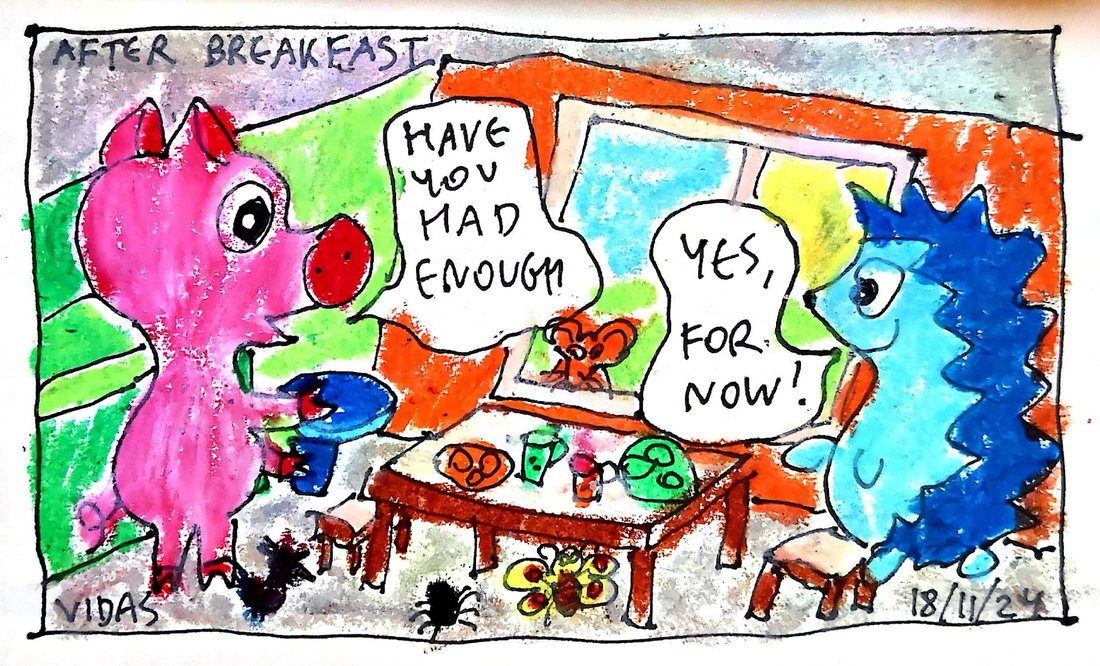
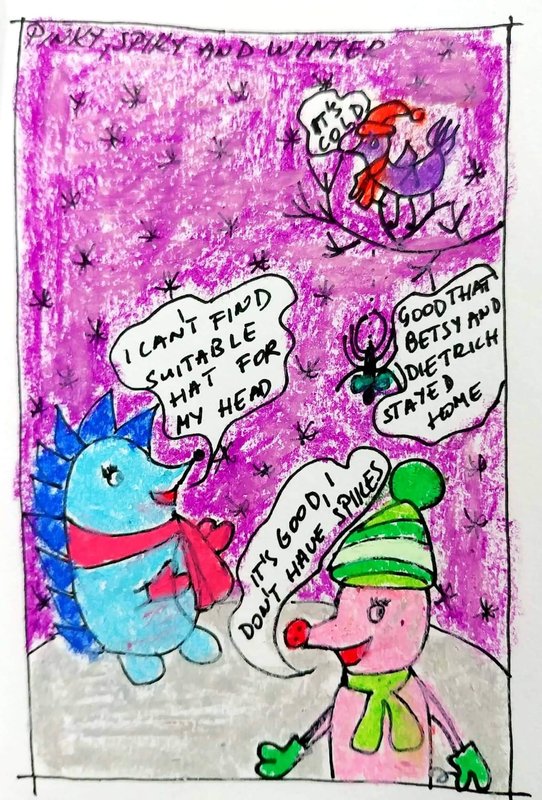

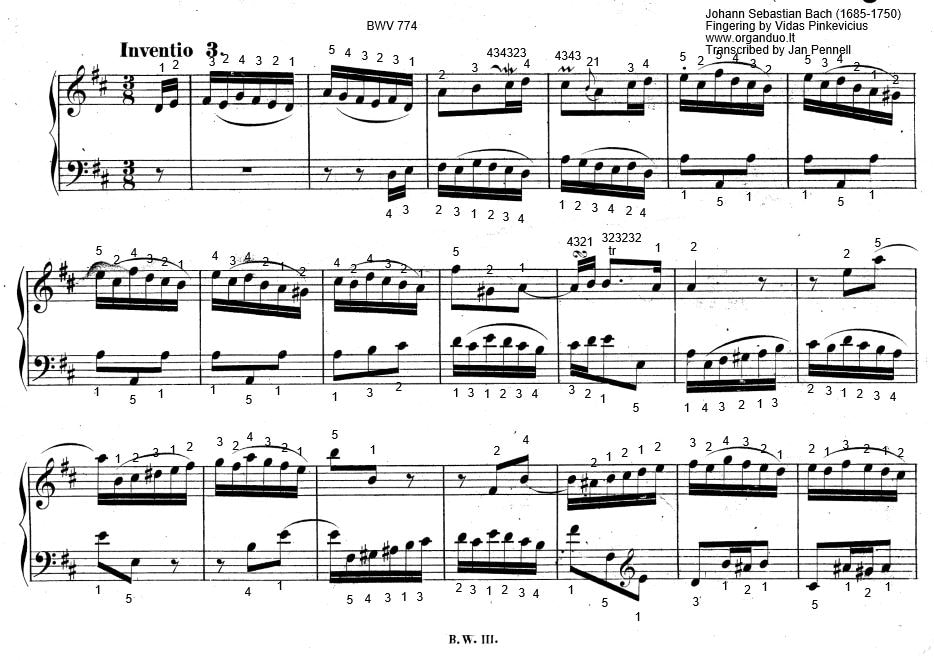
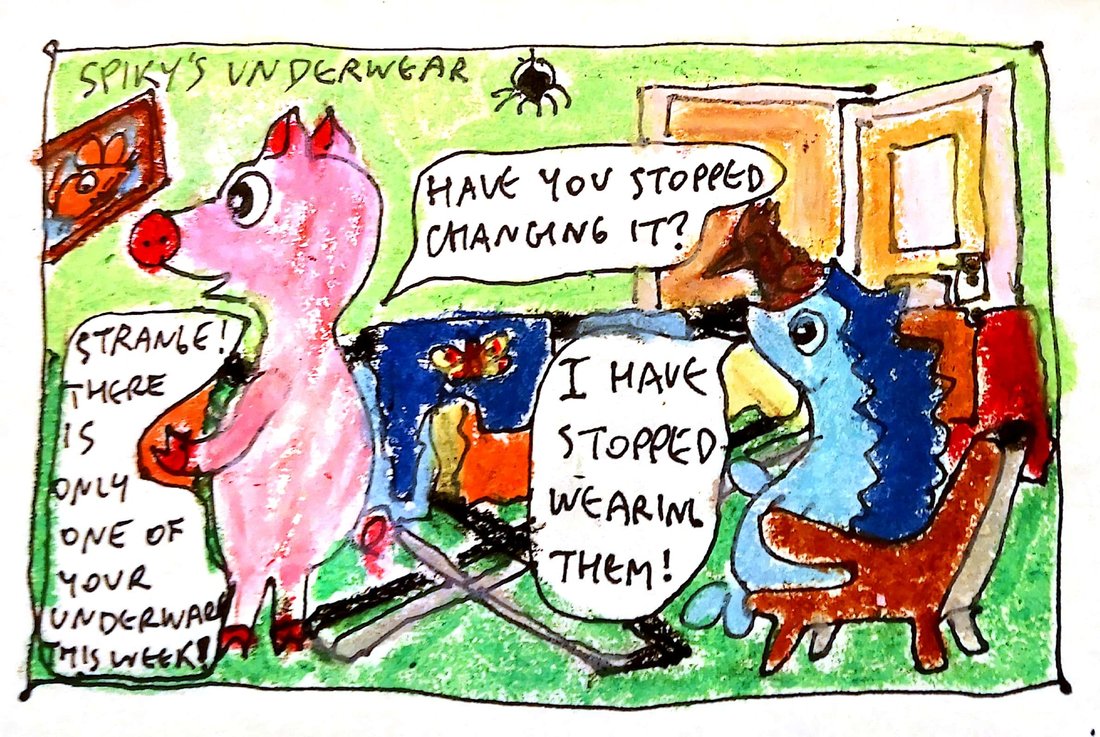
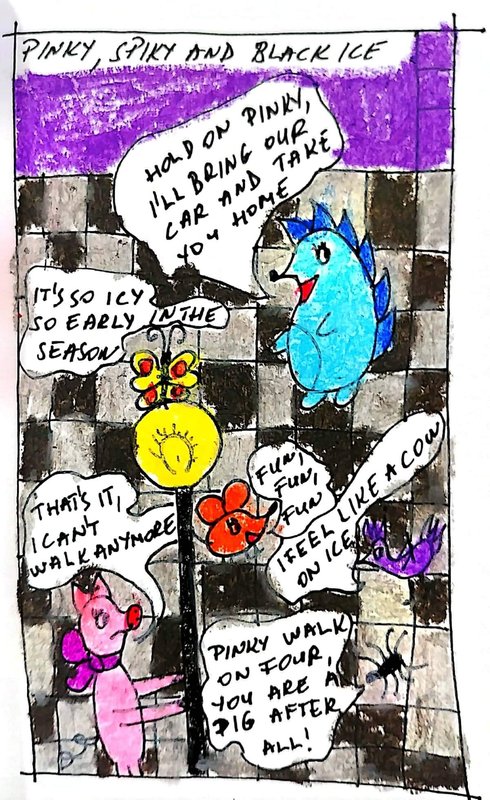
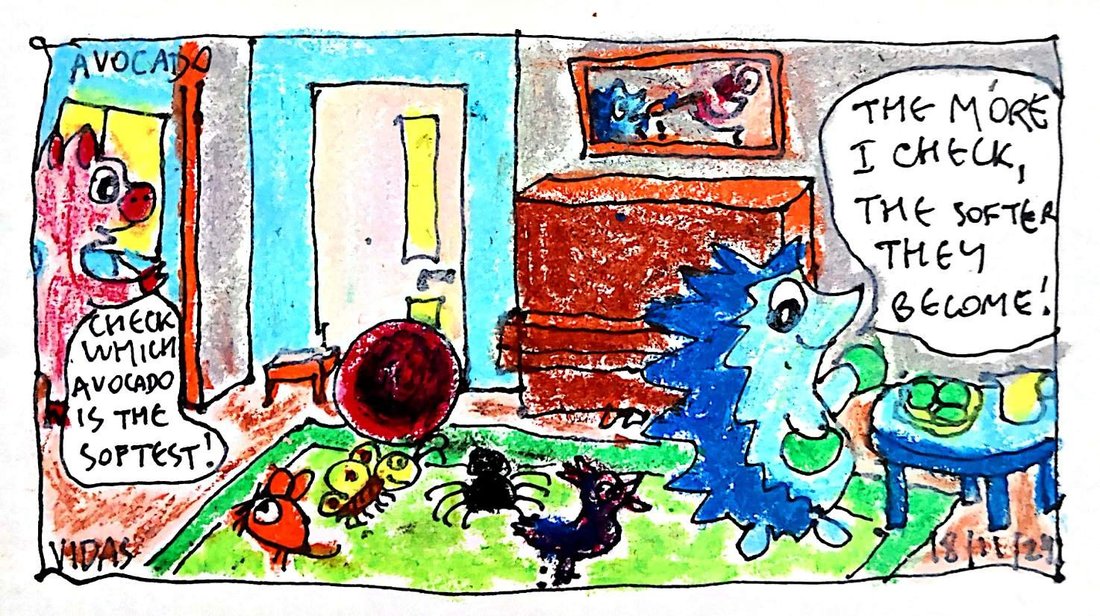

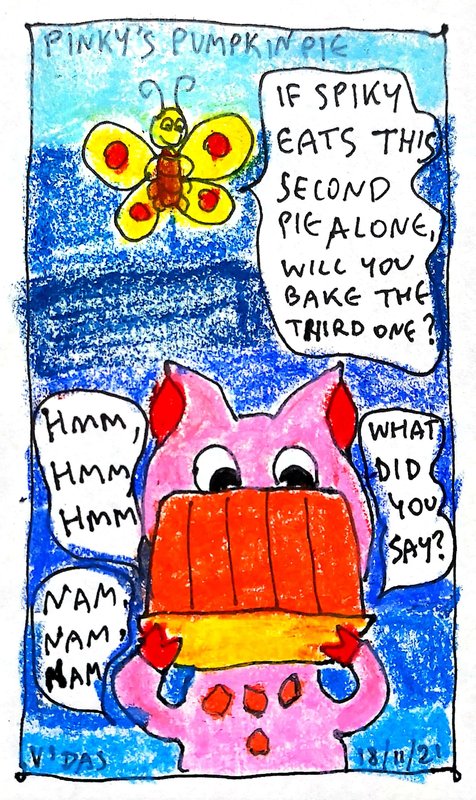
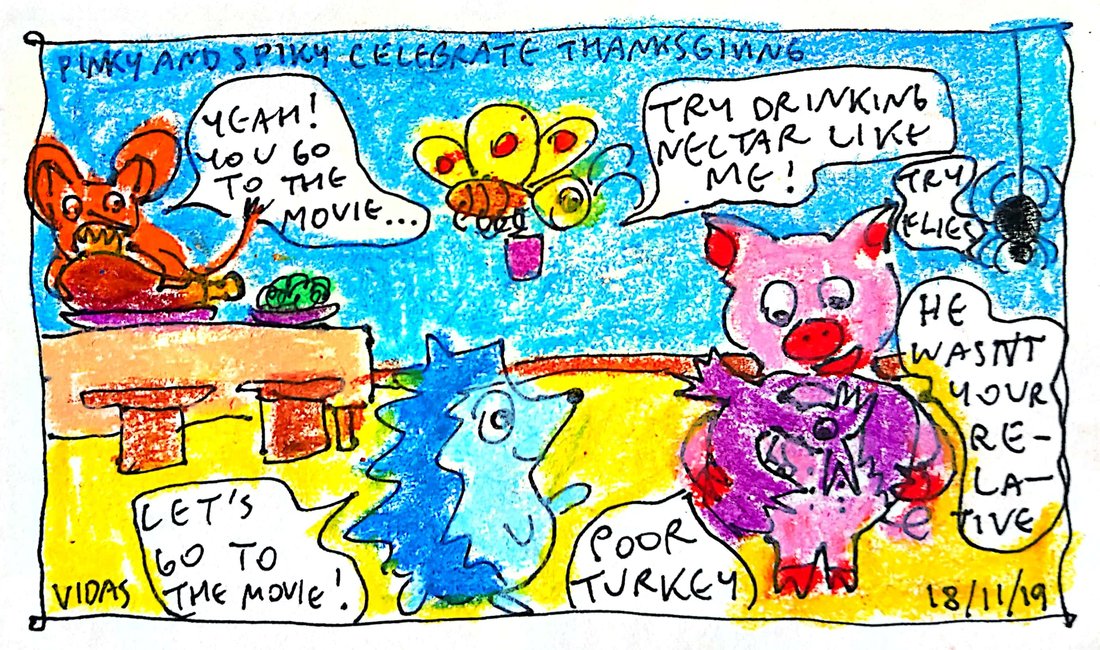
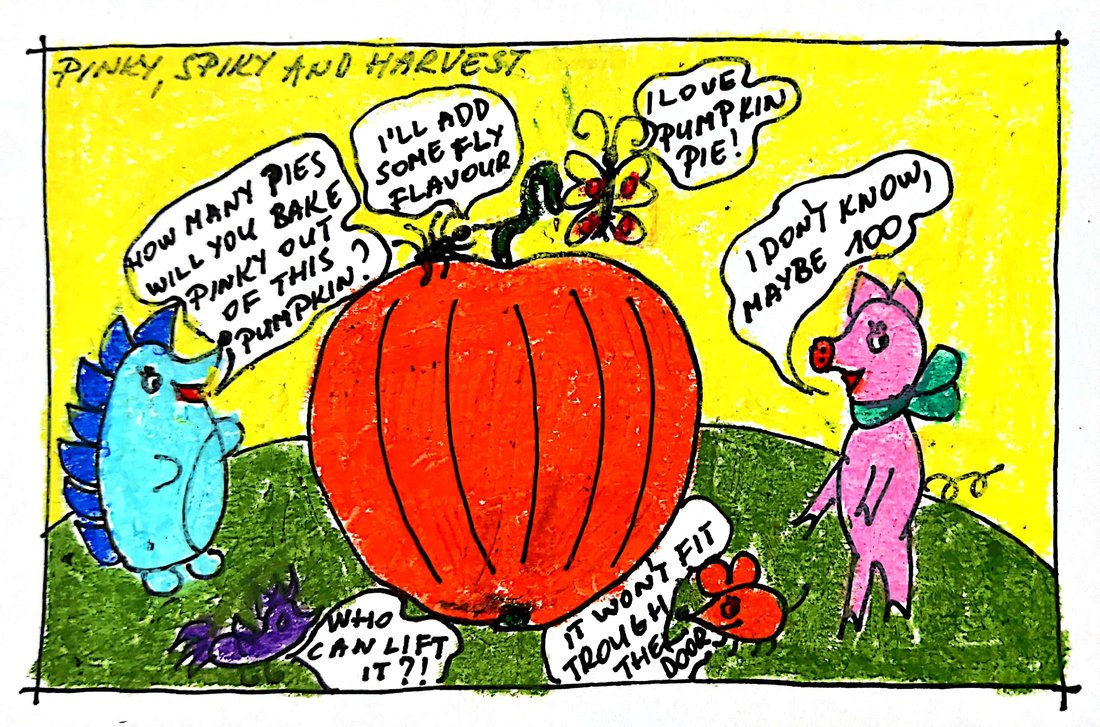
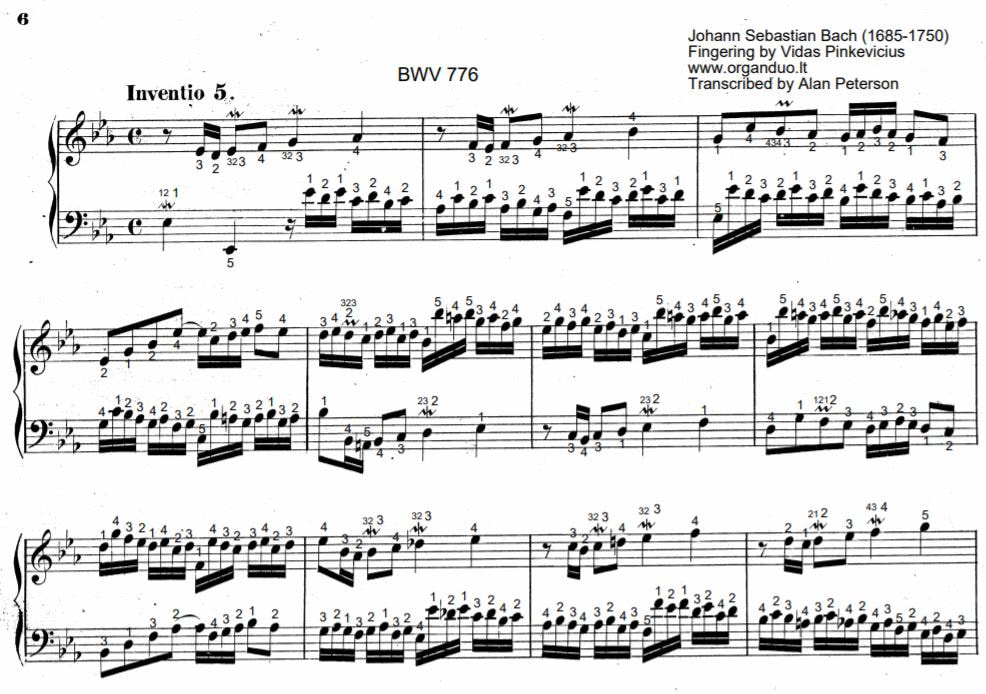
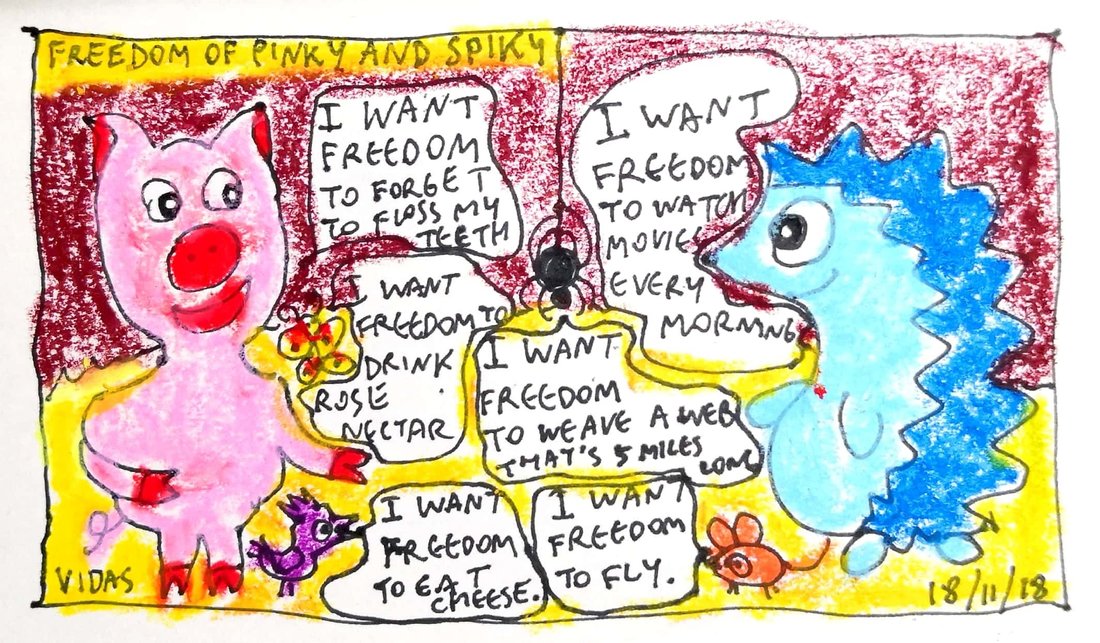



 RSS Feed
RSS Feed